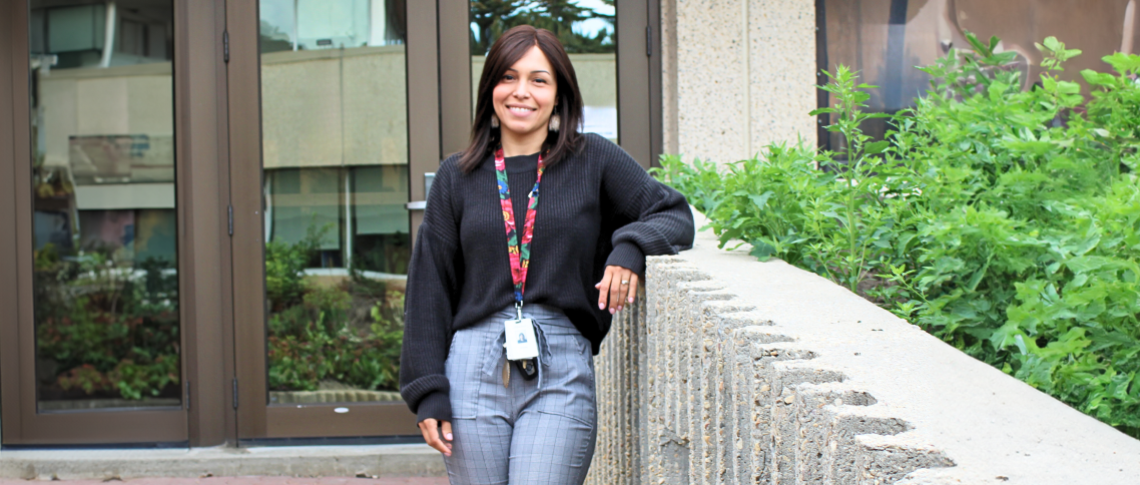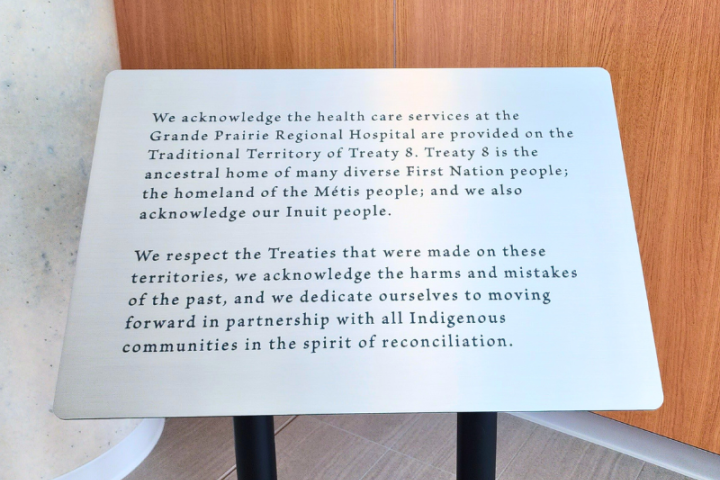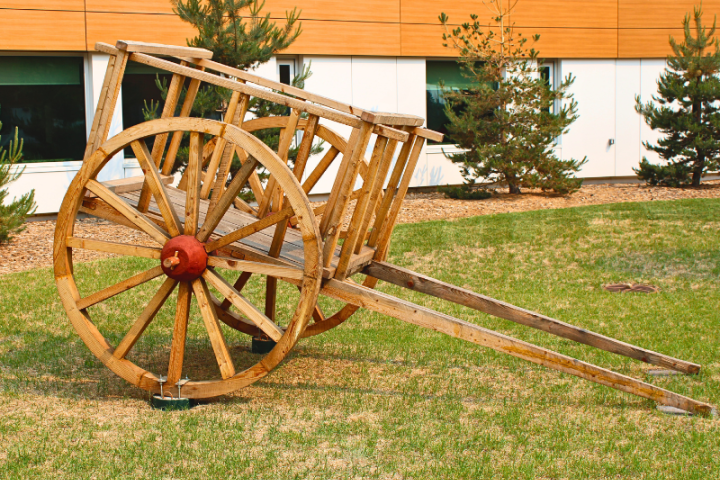

How long have you been in Grande Prairie? Are you from the area?
I moved to Grand Prairie in 2005 and I was born and raised in High Level so, Fort Vermillion, High Level, and then I'm an affiliated band member of Tall Cree First Nation. So, all that area. And then my partner is from Beaver, First Nation, so all across the north is where I'm from.
Can you tell us a bit about your job?
In terms of my work, my job title is a Senior Advisor with the North Zone Indigenous Health program. And so, that means that I'm in a role that encompasses the entire North Zone, from the northern border to the eastern and western sides, and almost all the way across Jasper straight, so it's a big zone.
I work in Indigenous Health, so anything that pertains to the wellness of Indigenous people and communities. I'm often involved in conversations about services and how we can ensure that the services we provide at Alberta Health Services (AHS) are culturally relevant and culturally safe, and really meet the needs of Indigenous people. I really enjoy my job, I'm relatively new to AHS, although I've worked with Indigenous communities for a lot of years. A big part of my job as well is community engagement, and making sure that we have strong relationships with stakeholders and rights holders, which is important to AHS. I am very privileged to do that work and support that relationship-building process.
What made you interested in this position or career path?
Well, I have a strong interest in wellness and so when I started in community work, I was welcomed into a role that offered me a lot of learning opportunities from an Indigenous perspective. As I learned, different teachings and cultural approaches, I felt my own wellness improving. Through that journey, I saw the really strong teachings that come through and what is possible in terms of different ways of supporting wellness and so, really, I think having that personal experience led me down a path of continuing to learn more about indigenous approaches to wellness.
Actually a few years ago, I stepped back and I took a role in more of a western clinical approach to mental health and well-being, and it didn't really have a lot of opportunity for the indigenous perspective and approaches and I missed that. I knew then that I was like that has to be part of whatever I'm doing in my job and so it led me back here, and here we are.


How has the Indigenous health program at AHS grown in the last 5 to 10 years?
Last fall Indigenous Health separated from Public Health as its own standalone program. That’s a big change that's pretty recent. And one of the big reasons for that is because the North Zone has identified that it’s a priority to make sure that Indigenous Health remains a focus for us. To put the resources necessary into supporting Indigenous Health. I think that's a big change in terms of the way the system is, but also there's been a lot of investment in supporting learning opportunities for people, and that includes things like the required organizational learning that all staff across AHS take.
Mandatory training for Indigenous education, histories, and perspectives is something that's been implemented, but it's also expanding, so it continues to be updated and we’re thinking about what else can be included in that education and training. So, yeah, lots of work has been done, and I think a lot of exciting things are in the works as well.
What do you feel is most exciting moving forward?
Oh, it's hard to name only one exciting thing. I would say I'm really excited about the work that's happening with regards to access to smudging and different healthcare facilities and really making that available.
What does AHS do to support cultural awareness and inclusion? What can it focus on improving?
I think going back to the required educational learning is a big one for sure. Just the knowing too. To explain a little bit, the Indigenous health program in the North Zone partners with the Indigenous Wellness Core. We work very closely with teams, entire teams, that are committed to developing educational content from an Indigenous perspective. So, I'm excited that that team is developing incredible learning opportunities for all staff, and we’ll continue as well to work closely in brainstorming what else we can be doing to support that. I think that's pretty exciting.
What is your favorite thing about working for AHS?
My favorite thing about working for AHS is that I have the opportunity to bring forward Indigenous health perspectives and that they're welcomed from other teams and services across AHS that want to learn and understand more. The support is there and we're in an exciting time when people are wanting to learn more, so to be in that place of helping that process feels really good.
Do you have any advice for individuals considering joining the organization?
That's a good question. I can just speak from an Indigenous Health perspective. If there are any Indigenous people who are interested in joining AHS, just that they know that there is space for them and that there's a lot of want and desire from AHS to be inclusive of Indigenous perspectives. That I hope that people never feel like they have to leave their Indigenous identity at the door when they come to AHS. It's welcomed and celebrated and that's what I think I would want people to know.